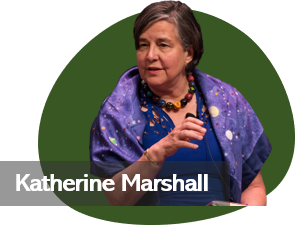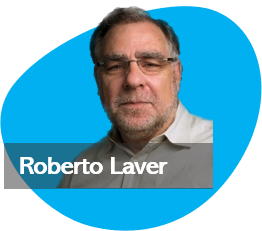The Joint Learning Initiative on Faith and Local Communities and the Faith and Public Integrity Network co-hosted a Faith and Anticorruption webinar on March 22, 2021.
Listen to the conversation below that explores the opportunities and challenges for faith leaders and organizations in promoting public integrity and fighting corruption.
Corruption, particularly endemic corruption, is widely recognized as a key obstacle to development. Anticorruption has been central to the international development agenda for over two decades. Our theme is corruption, a social malaise widely recognized as one of the greatest impediments to equitable and sustainable development. Efforts to counter corruption, at the international and national levels, have been at the center of the development agenda, though the results have not been very encouraging. Engagement of faith leaders and organizations in anticorruption efforts has been too limited.
- Why is it important for faith actors to be involved? How might they be involved?
- What distinctive assets might they bring? What are some specific examples?
- Why haven’t we seen more engagement?
- Will the growing emphasis on collective action foster greater participation of faith actors?
- Do faith actors themselves need an internal moral awakening or is the limited engagement more linked to uncertainty as to effective strategies and tools?
The second part of the event included a discussion on the following questions
I am working in Afghanistan as an international development practitioner. At another time I also worked as a consultant among Christian minorities in different countries. My interest is in the role of religion in development and also peacebuilding (and sadly corruption is in every sector). There is often a shame, you don’t put your dirty laundry out in the open – how can we have a discussion on corruption when you don’t share the negative practices of your own tribal/family/religious subgroup?
When it comes to religious leaders, is it not true that many of them are compromised by the fact that many of their biggest donors are corrupt government officials? If so, do you have recommendations for how we can challenge religious leaders on this matter?
What role do you think Christians and adherents of other faiths working in commerce and finance have in reducing corruption? The Christian organisations I’m aware of recognise the problem but seem more focussed on mitigation for their organisation than transformation.
Corruption seems to be both a moral issue and a structural issue, both in causes and solutions. How do you see the interplay between the personal ethics and, say, political/economic structures?
In Nigeria I work with Youth focus Peace building organization I want to know how the info-demic have influenced young people in holding religious leaders in high esteemed and not seeing them through the lens of corruption.
I work in Nigeria in interfaith dialogue, youth and Peacebuilding. Faith and corruption is very silent and not talked about all time in Nigeria. Ask me – who are those in government? I’ll tell you it’s either a Christian or Muslim or free thinker who is in there. I think for both government and faith groups to stand upright, the only thing is that both are supposed to strengthen the laws on anti-corruption and let the laws be enforced.
How much can be achieved in fighting corruption with out a. courage and b. collective action?
About the Speakers

Katherine Marshall is a leading expert on the engagement of the faith sector in development. She is a senior fellow at the Berkley Center for Religion, Peace, and World Affairs, and a professor of the practice of development, conflict, and religion in Georgetown University’s Walsh School of Foreign Service. She helped to create and now serves as the executive director of the World Faiths Development Dialogue. She is also vice president of the G20 Interfaith Association. Marshall, who worked at the World Bank from 1971 to 2006, has nearly five decades of experience on a wide range of development issues in Africa, Latin America, East Asia, and the Middle East. She led the World Bank’s faith and ethics initiative between 2000 and 2006.

Roberto Laver is an international lawyer with over thirty years of experience in law and development, nonprofit leadership and academia. He is founder and director of Fides, a nonprofit supporting Christian leaders and communities to promote public integrity and counter corruption. Roberto practiced law in the private sector in Argentina and in Washington D.C. and Boston, USA. From 1989-1998, he worked at the World Bank with a focus on rule of law and judicial reform. He taught at the Fletcher School of Law and Diplomacy and has been a network fellow at Edmond J. Safra Center for Ethics at Harvard University. He is cofounder and member of the Steering Committee for FPIN.